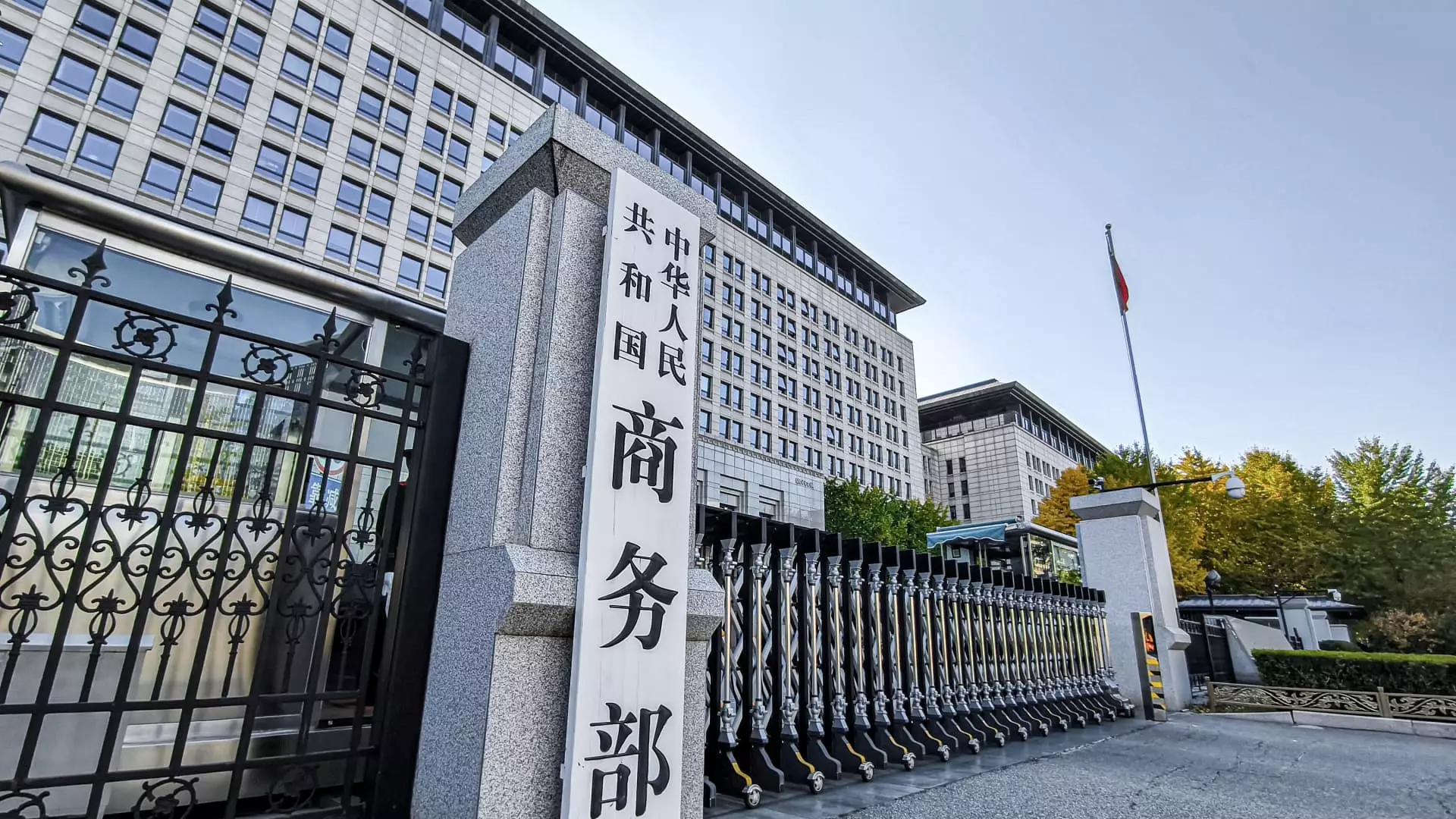In an era where global interconnectedness is vital for sustainable economic growth, the recent implementation of heavy tariffs by the United States on numerous countries, as decreed by President Trump, raises grave concerns. The sheer audacity of such unilateral measures not only challenges established international trade norms but also sets a perilous precedent that could unravel decades of cooperative economics. This behavior emanates from a protectionist mindset that blindly prioritizes short-term domestic gains over long-term global stability.
The Fallout of Isolationist Policies
China’s defiant response—labeling the U.S. tariffs as “unilateral bullying”—is emblematic of a broader global discontent. Countries are not merely standing by as the U.S. leaders march forward with a self-centered agenda; they are mobilizing in unity to confront what they see as an existential threat to their economies. The Chinese Ministry of Commerce’s vehement call for the cancellation of these tariffs reflects a growing rift that extends beyond mere trading disputes; it jeopardizes the delicate balance of international relations. Countries from Canada to South Korea are actively planning counter-measures as the specter of a trade war looms larger, signaling a potential spiral into economic isolationism.
Governments Unite Against Economic Retribution
The collective outrage from various nations signifies that the consequences of such tariffs are not limited to mere economic sanctions; they could ignite a full-blown international crisis. Canadian Prime Minister Mark Carney’s vow to fight back “with purpose and with force” demonstrates that the stakes are incredibly high. It isn’t merely an economic issue; it’s a matter of national pride and reciprocal respect. To achieve a sustainable global economy, nations must be willing to engage in constructive dialogue, rather than retaliatory tactics. Ignoring this calls into question Trump’s commitment to international cooperation and the well-being of allied economies.
A Critique of Unilateralism
The Trump administration’s approach can be perceived as shortsighted. By imposing excessive tariffs that come atop existing levies, the U.S. finds itself in a precarious position that could irrevocably alter its standing in the world. The notion that such aggressive tactics would lead to economic dominance is fundamentally flawed, and the reality is that it disrupts established trade networks, alienating both allies and adversaries. Tariffs invite retaliation, and as other nations follow suit, the U.S. could find itself trapped in a downward spiral that only serves to weaken its own economic infrastructure.
The Road Ahead
The era of globalization brought about unprecedented levels of cooperation and mutual benefit among countries. It is disheartening to witness the rise of a protectionist, “America First” rhetoric that undermines these collective efforts. The world doesn’t exist in a vacuum; every action has imperfections, and retaliatory measures only deepen the crisis. As organizations, businesses, and countries alike navigate these treacherous waters, it is imperative for leaders to reassess the effectiveness of such tactics and to choose diplomacy over isolation, before the scars become too deep to heal.


Leave a Reply